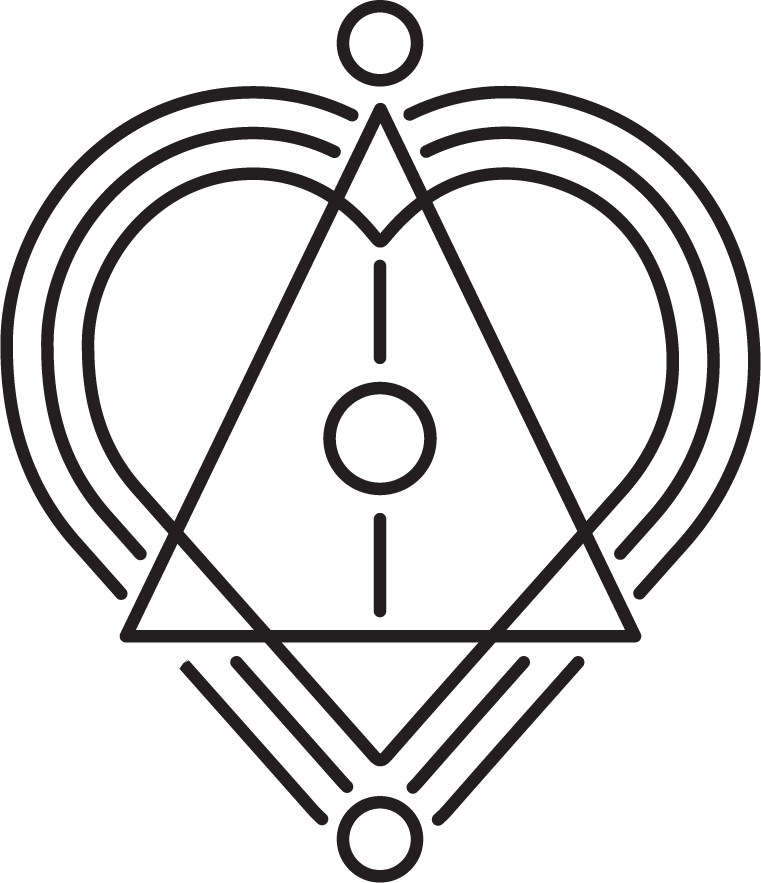Intuition + Trauma: Considerations and Supportive Practices
I believe that the cultivation and development of intuition is possible for everyone; for some people this seems to come easily, and others seem to struggle to discern between intuitive information and anxiety, worry, or intrusive thoughts, or even feel no connection. Had you ever considered the role that trauma plays in this?
There is a lot of anecdotal information as well as research that explores the relationship between intuition and trauma. In the case of childhood trauma, a person may have developed hypervigilance, which in short, is the need to stay hyper focused on the environment-particularly the actions of others- to keep themself safe. Hypervigilance can develop with adult trauma as well; it is a common manifestation in Post Traumatic Stress Disorder, or, PTSD. When a person is hypervigilant, they learn to read cues from others very quickly. They may begin to feel things about others, or even worry about how other people are feeling in order to feel safe.
The Role of Interoception
The flip side of this, is that trauma causes interoception to be diminished. Interoception is the body’s ability to sense internal cues (hunger, bathroom needs, heart rate) as well as the emotional state connected to various environmental and internal cues. In other words, it can be difficult for people with poor interoception to know how they are feeling, or what their internal body signals are trying to communicate to them. In this scenario, it is common that people feel “numb” and have a hard time registering hunger, fullness, or bathroom needs. Issues with interoception are also associated with individuals who engage in self harm, like cutting.
And what’s more, a person can present with both patterns concurrently. They can have intuitive abilities of reading cues from others adeptly, while missing some of the other internal cues of intuition that rely on interoception.
Intuitive abilities do not just come from the mind, or the “sixth sense” (an activated pineal gland/third eye). Many intuitive abilities can be perceived from within the body, and they are subtle (especially for a person with diminished interoception). Things like gut instincts, hair standing up on body parts (goosebumps), temperature changes in the body, a solid “knowing” that is not related to thought-as in “feeling it in the bones”. Even our senses of smell and taste are some ways that intuition can work through the bodily senses.
If interoception is not fully functioning, it is harder to develop trust in one’s intuitive abilities. And considering the conditioning that humanity has collectively received (which keeps us small and disempowered, only relying on outside validation versus deepening our own internal knowing), it only adds to any existing doubts of our innate potential abilities. I am here to pose the question for everyone reading this: what if there is more for us? What if the development of our intuitive abilities and healing of our wounds propels us towards a quiet revolution of empowerment?
Check out some of my ideas below, to get an idea of how to get started.
Helpful Tips to Support Yourself + Build Your Intuition
Spend time in the natural world. Take breaks from the heaviness. Grab a friend and go for a walk or hike.
Pay attention to subtle body cues. Start with the outside of the body (pay close attention to sensory experiences like washing your hands, also noticing the way that it makes you feel emotionally), and work to the inside (seeing if you can sense your heartbeat). Begin to pay attention to the subtle cues from your body. Remember that developing interoception can help heal trauma,, and can also build your intuition.
Develop a meditation practice and stick to it; start small and build into longer times. You will literally be building stronger pathways from your amygdala (alarm bell in brain that signals Fight, Flight, Freeze, Fawn) to the prefrontal cortex (rational thought, problem solving).
Play! Engage in fun, creative pursuits and be weary of perfectionism tendencies.
Get support for trauma. Work with a trauma informed therapist, consider modalities like brain spotting and EMDR.
Engage in somatic based practices like the ones offered in my RE SET classes at The Energetic Heart Studio.
Journal, free write, or practice automatic writing.
Remind yourself regularly that your body and spirit are RESILIENT, especially if you have experienced trauma. You can overcome, grow, and change, at any age.
Ask, “Is this worry or intuition?” when you experience strong thoughts. Check in: are they invasive, ruminating, or always fearful? If so, it is likely worry. In my experience, intuition comes in a neutral voice. Pay attention to the sensations in your body, and begin to label when it’s from worry or when you’ve had an intuitive hit. This will help you more quickly identify your personal responses.
Learn to TRUST your intuition by building your awareness of body cues (interoception), and by listening to your initial insticts (start small—like if you think of a friend, call them!).
Get support for intuitive development with a practitioner that you trust. I offer a self paced recorded online class, Grounded Rising, to help with this.
Taking the time to heal from trauma and building your intuition are generative practices. They create new pathways in the brain, and help you to feel more fully embodied and connected to yourself. Healing and leaning into intuition are empowering and available to you at any time, and at any age. In my personal experience, working on healing from trauma, building interoception, and deepening my own intuition (through practice and developing trust in myself and my abilities) has been a life changing experience.
If you are curious about learning more about the added interection of intuition and trauma with neurodiversity, please check out my latest blog post for AboutPlay, my occupational therapy practice.
